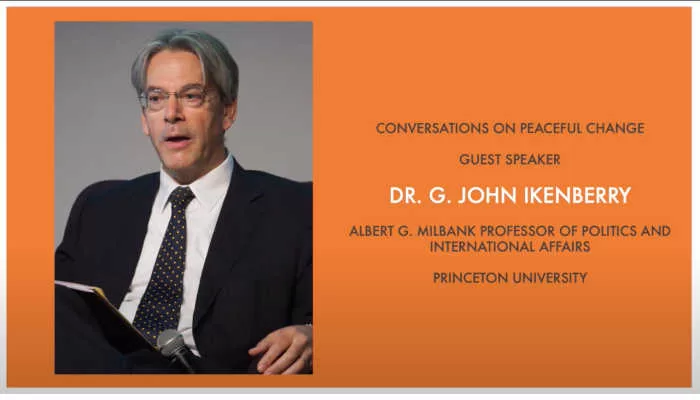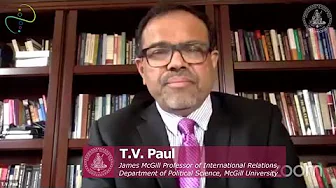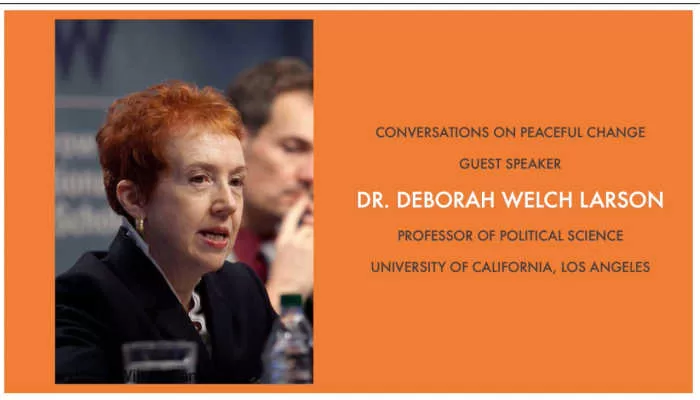T.V. Paul is Distinguished James McGill Professor in the Department of Political Science at McGill University. Paul specializes and teaches courses in international relations, especially international security, regional security and South Asia. He is the author or editor of 24 books and nearly 85 journal articles or book chapters. In September 2018, Paul became a Fellow (Elected) of the Royal Society of Canada.
In March 2019, Paul took the leadership role in forming the Global Research Network on Peaceful Change (GRENPEC). This network is aimed at promoting worldwide scholarship on this neglected subject. In August 2021, Oxford University Press published The Oxford Handbook of Peaceful Change in International Relations with some 41 chapters by leading scholars on global, regional and national level research on peaceful change.
T.V. Paul was elected as the 56th President of International Studies Association and on March 17, 2016 he took charge as ISA President for 2016-17. He delivered the presidential address on the theme: “Recasting Statecraft: International Relations and the Strategies of Peaceful Change.” In the presentation, he called for the International Relations discipline and its theoretical paradigms to devote more attention to strategies for achieving enduring peace among states. For the full text of the speech, see: ISA Presidential Address . For the Power point see: ISA Presidential Address PowerPoint .
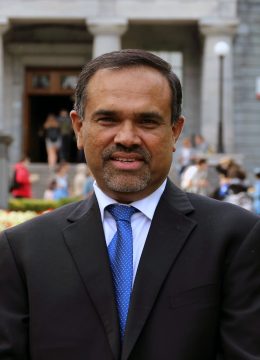
GRENPEC
Conversations on Peaceful Change
The rise of new centers of powers and pressures generated by globalization have brought forth the need to understand peaceful change an urgent necessity…
Books
The Unfinished Quest: India’s Search for Major Power Status from Nehru to Modi (New York and Oxford: Oxford University Press, 2024)
In The Unfinished Quest, T.V. Paul charts India’s checkered path toward higher regional and global status, and sheds important light on its significance as the “swing power” that can mitigate China’s aggressive rise in the Indo-Pacific region.

Restraining Great Powers: Soft Balancing from Empires to the Global Era (Yale University Press, September 2018)

Oxford Handbook on Peaceful Change in International Relations (Lead Editor and Contributor with Deborah Welch Larson, Harold Trinkunas, Anders Wivel &, Ralf Emmers), New York: Oxford University Press, August 2021.
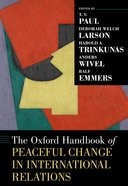
International Institutions and Power Politics: Bridging the Divide (Editor and Contributor with Anders Wivel) Washington DC: Georgetown University Press, September, 2019.
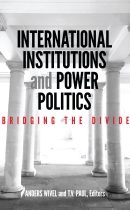
The China-India Rivalry in the Globalization Era (Editor and Contributor), Washington DC: Georgetown University Press, August, 2018.
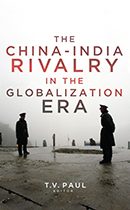
Honours and Awards
-
Kim Dae-jung Award (Inaugural) International Political Science Association (IPSA), 2025 (Award named after former South Korean President-Nobel Laureate for Peace).
- ISA-Canada Distinguished Scholar Award, 2024.
- Honored with the establishment of T.V. Paul Best Book Award by the Global International Studies Section (GIRS) of International Studies Association (ISA), May 2023.
- Brain Gain Distinguished Scholar, Kerala State Higher Education Council, Jan-Feb 2023.
- Director (Founding), Global Research Network on Peaceful Change (GRENPEC), 2019—Present
- Research Affiliate, Center for International Security and Cooperation (CISAC), Stanford University, September 2021- August 2022
- Visiting Scholar, Center for International Security and Cooperation (CISAC), Stanford University, September 2020- August 2021
- Royal Society of Canada Fellow, September 2018.
- President, International Studies Association (ISA), 2016-17
- President-Elect, International Studies Association (ISA), 2015-16
- Erudite Fellow, Kerala State Higher Education Council, India, January 2016 (Invitation)
- Included in the A-List of 41 Influential Indo-Canadians, The Indian
Diaspora (www.theindiandiaspora.com), Toronto, January 2015 - The Ngee Ann Kongsi Professor (Visiting) of International Relations, S. Rajaratnam School of International Studies, Nanyang Technological University, Singapore, August 2014
- Charles Phelps Taft Lecturer, University of Cincinnati, April 2014
- Ambassador John Price and Marcia Price World Affairs Lecturer, Utah Council for Citizen Diplomacy, March 2014


